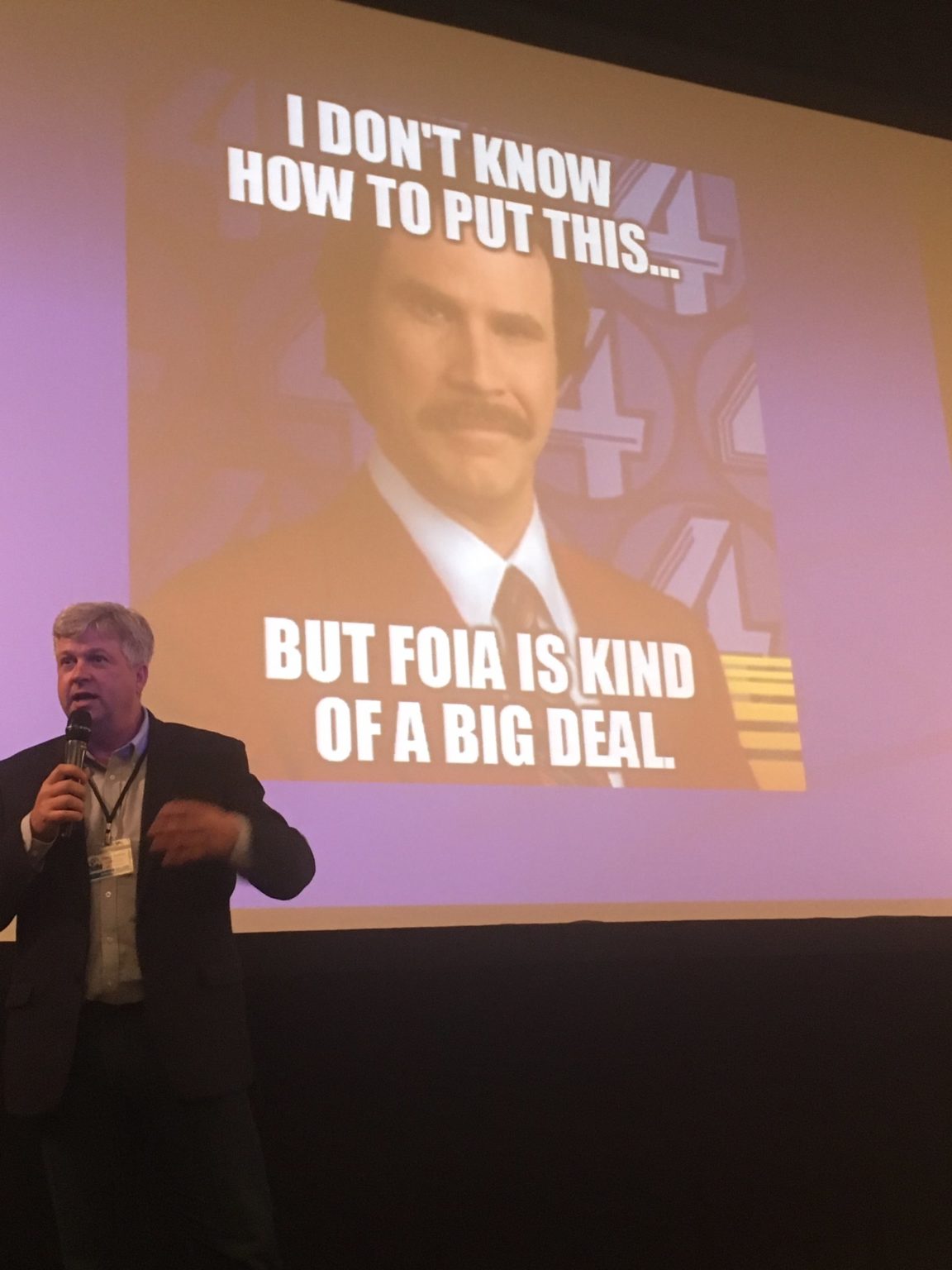FOI and public records 'orders,' or how to be a mean cat
When it comes to obtaining public records – city council minutes, police reports, public employee salaries – David Cuillier of

When it comes to obtaining public records – city council minutes, police reports, public employee salaries – David Cuillier of the University of Arizona’s School of Journalism doesn’t take no for an answer. And, as he told attendees at the LION Publishers 2016 Summit in Chicago Friday afternoon, he doesn’t “request” either. It’s all about whether you want to be a cute kitten (“may I please … “) or a mean cat (“gimme the records!”).
“It is a state of mind,” said Cuillier. “The government works for us. We are entitled to see this. We should not have to ‘request’ it. I urge people to place a ‘public records order.’”
He also encouraged us to make public records requests on a regular basis. Cuillier himself uses the motto: “FOI First on Friday” – get to the office and make a records request before you do anything else. Don’t even open your email.
“It has to be intentional. If not, it’s not going to happen. You have to integrate this into the work week,” he said.
Cuillier provided a link to a trove of resources, but here are some of the highlights:
There’s help out there, from resources like FOIA Mapper and MuckRock. And, if you’re not sure how to write a letter to an official making the request (ok, order), there are templates. I.e. there’s no excuse not to be doing this. If you’re not sure what to request, ask for a list of everything that’s been requested. It’ll teach you a lot.
“Don’t be afraid to take off the gloves,” said Cuillier. When government officials say no to you, they are saying no to your whole community. His idea is to make it so hard for them to say no that they end up saying yes.
“It’s not being a jerk. It’s being a steward for information in your community."
But what if the government refuses to hand over the document you want. Sue 'em. There will be some cost involved, Cuillion said, but if you win you’ll get that money back – or maybe you can get money from the National Freedom of Information Coalition or the Society of Professional Journalists.
Of course, once an official or agency agrees to hand over some documents, they have other ways of throwing up roadblocks. Making you pay, for instance. Cuillier said to try negotiating the cost if an official puts a high price on photocopies. But, Cuillion acknowledged, it’s becoming more common for government agencies to charge fees for other tasks, like searching or redacting. Actions like that have to be combatted through legislation, he said.
There were a couple other helpful tips that came up during the Q&A: Realize that sometimes you are doing a low-level official a favor by making a FIOA request. That official might be inclined to give you the document but would get in trouble from higher-ups. The formal request gives the official cover. And, make sure you spell out everything that you want, including things like text messages and emails.
Sign up for the weekly newsletter
Join the LION mailing list to get our weekly roundup of opportunities and resources for news entrepreneurs. View our most recent issues.
Related Articles
Last call: Apply to receive $600 in travel support to attend the Independent News Sustainability Summit in Chicago
Fill out the travel stipend request form by Sunday, July 21, at midnight ET.
Igniting innovation: How RJI empowers independent news publishers to experiment with new ideas
RJI supports small newsrooms and community-centered journalists as they work to serve their communities.
How The Bedford Citizen prioritized its internal operations to pursue revenue growth and avoid burnout
Through LION’s Sustainability Lab, the team developed a master spreadsheet to track ideas and impact.